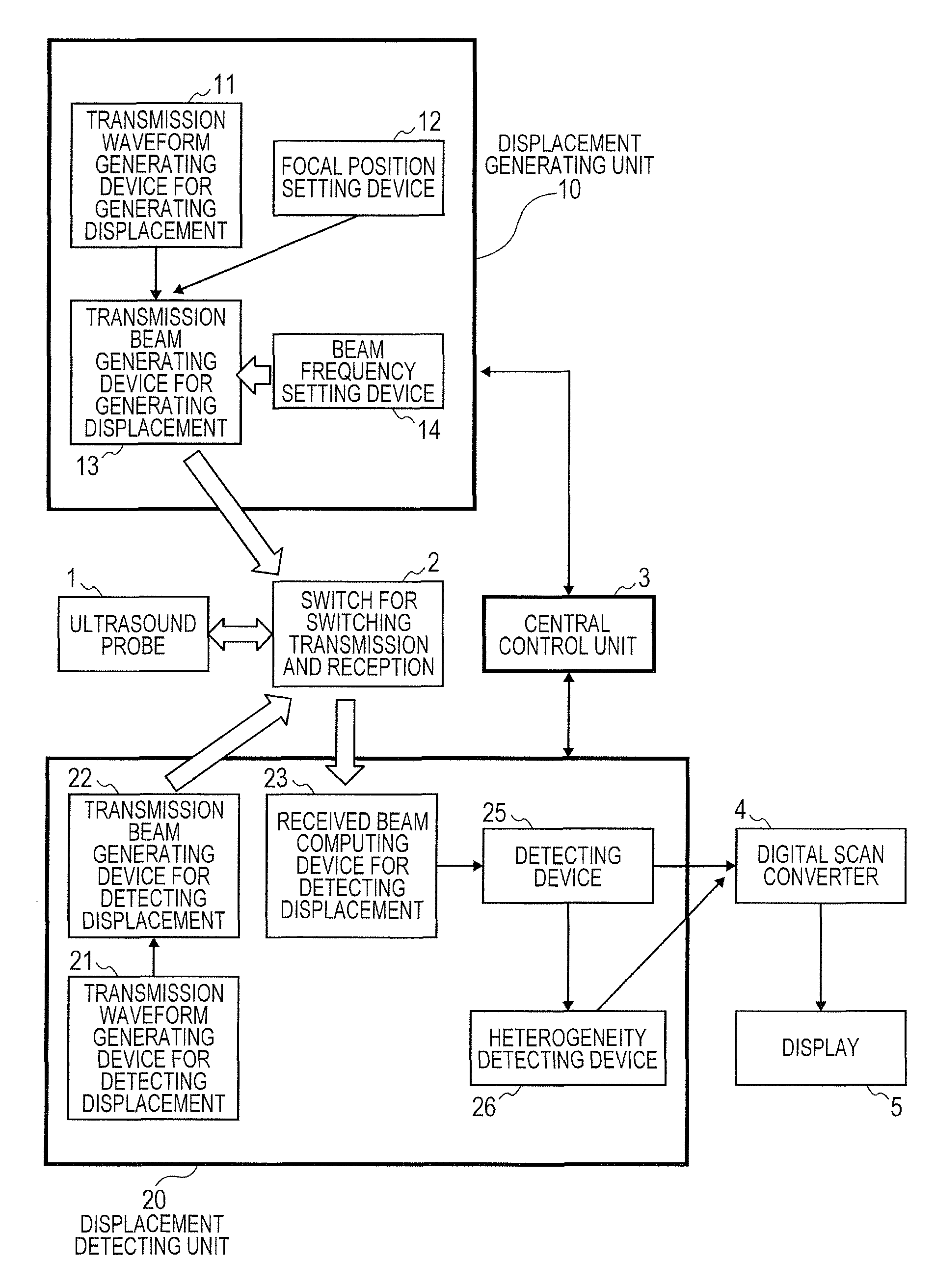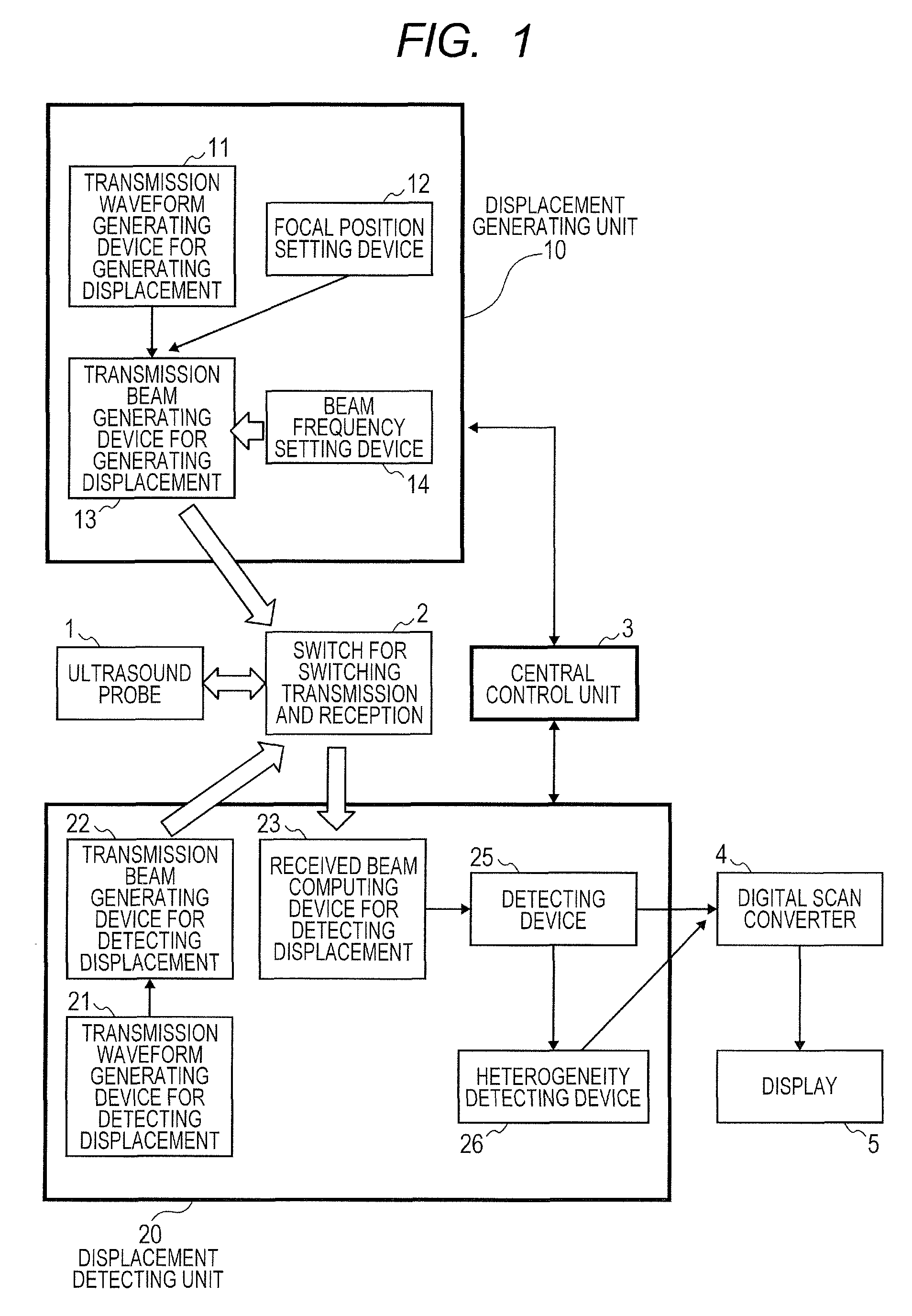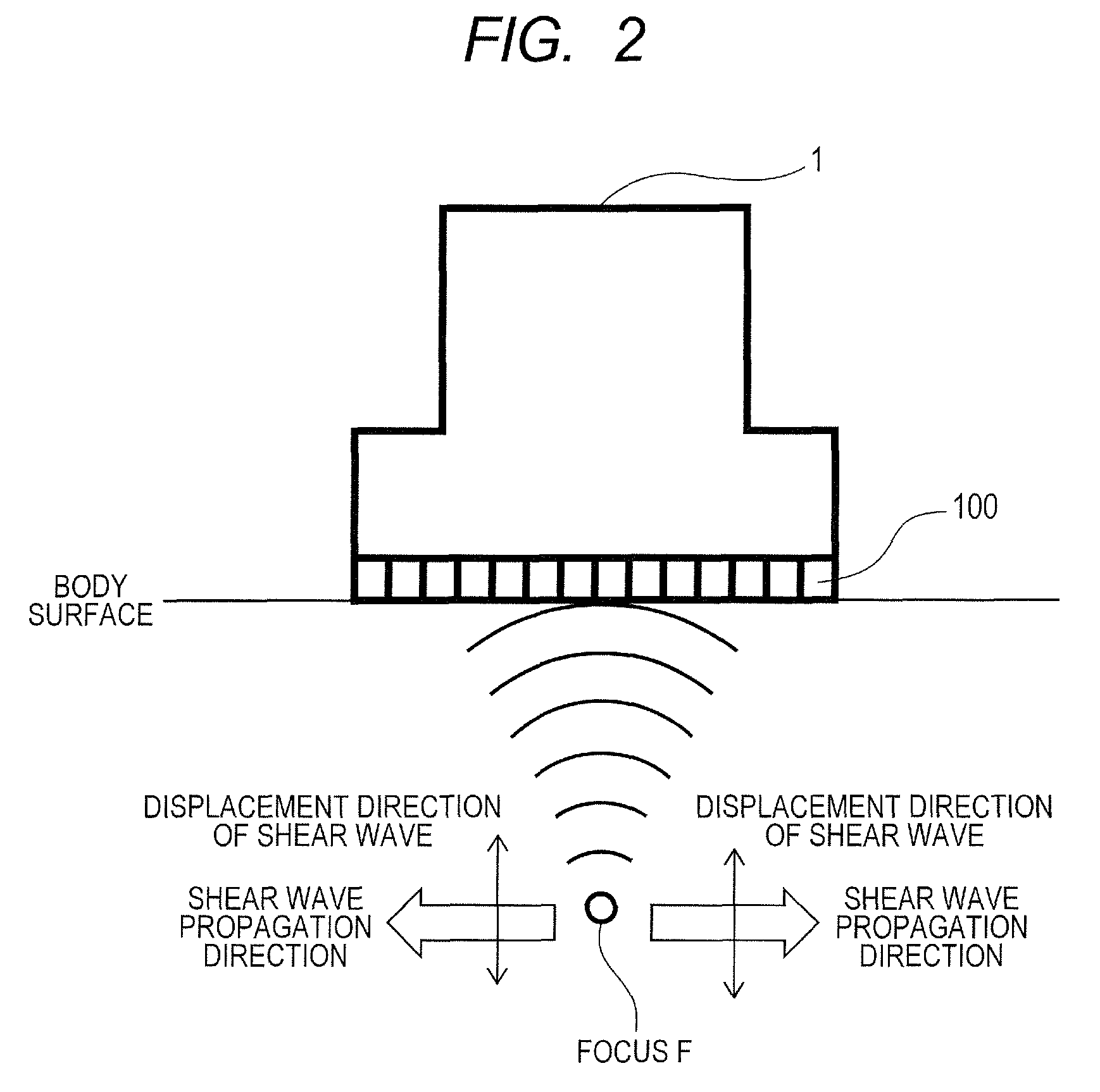Ultrasound diagnosis apparatus
a technology of ultrasonic and diagnostic equipment, applied in the field of ultrasonic diagnostic equipment, can solve the problems of limited imaged objects, insufficient displacement, difficult pressing, etc., and achieve the effect of high-precision evaluation
- Summary
- Abstract
- Description
- Claims
- Application Information
AI Technical Summary
Benefits of technology
Problems solved by technology
Method used
Image
Examples
first embodiment
[0044]In this embodiment, as shown in FIG. 2, a case that a linear array type ultrasound probe 1 is touched to a surface of a body of a subject and an ultrasonic beam for generating displacement is focused on a target section in the body will be described. In this case, a case that a direction of the propagation of the ultrasonic beam for generating displacement (=the transmission beam for generating displacement) on the desired section is a direction perpendicular to the body surface will be described.
[0045]As shown in upper and lower halves of FIG. 3, the generation of an ultrasonic beam is realized by calculating distance between each focus and a position of each element 100 of the ultrasound probe 1, allocating delay time calculated by dividing difference in distance among elements by the sonic velocity of an object every element and transmitting the ultrasonic beam. When an ultrasonic beam for generating displacement is radiated onto a focus, radiation pressure is generated acc...
second embodiment
[0070]A second embodiment for evaluating heterogeneity based upon plural temporal waveforms of the displacement of a shear wave in a heterogeneity detecting device 26 will be described referring to FIGS. 10A and 10B below.
[0071]As shown in FIG. 10A, in one method, after a temporal waveform 101 of the displacement of a shear wave is fitted using an arbitrary well-known function, for example, a polynomial function, an exponential function, Gaussian function and others, noise is removed using a low-pass filter and others. Afterward, half-width W having a smaller value than a peak value dp of a fitted waveform 102 by −6 dB as a threshold is calculated. Noise removing processing may be also performed before fitting and noise removing processing may be also omitted. After fitting or after noise is removed, the width of the temporal waveform described in the first embodiment may be also calculated. A value related to heterogeneity may be also calculated based upon a function having time tp...
third embodiment
[0077]In a third embodiment, a method of evaluating the heterogeneity of sonic velocity that proceeds from frequency dispersion will be described using FIGS. 11 and 12.
[0078]For a cause of the heterogeneity of sonic velocity, tissue structure, frequency dispersion, an amplitude and particle velocity can be given. In the first embodiment, the method of evaluating the heterogeneity of sonic velocity that proceeds from tissue structure is described. When there is the heterogeneity of sonic velocity that proceeds from frequency dispersion and when a repetition frequency PRFp in the radiation of a transmission beam for generating displacement has bandwidth, the velocity of a shear wave varies. In this embodiment, the heterogeneity of sonic velocity that proceeds from frequency dispersion will be mainly described.
[0079]FIG. 11 shows a processing flow of the third embodiment in which the heterogeneity of sonic velocity that proceeds from frequency dispersion is measured and evaluated when ...
PUM
 Login to View More
Login to View More Abstract
Description
Claims
Application Information
 Login to View More
Login to View More - R&D
- Intellectual Property
- Life Sciences
- Materials
- Tech Scout
- Unparalleled Data Quality
- Higher Quality Content
- 60% Fewer Hallucinations
Browse by: Latest US Patents, China's latest patents, Technical Efficacy Thesaurus, Application Domain, Technology Topic, Popular Technical Reports.
© 2025 PatSnap. All rights reserved.Legal|Privacy policy|Modern Slavery Act Transparency Statement|Sitemap|About US| Contact US: help@patsnap.com



